

Contributed by Sharon Butler / Last week news spread through the New York art community that Thomas Nozkowski had died after a long fight with pancreatic cancer. Nozkowski was known for his colorful abstractions, often made on small canvas boards. His intimate, anti-heroic approach influenced a generation of abstract artists (myself included) and readers will recall that his work was often featured on Two Coats of Paint. Roberta Smith contributed a thoughtful obituary at the New York Times. Here�s an excerpt:
In the early 1970s, after several years of making large abstract paintings and then more modest Post-Minimal sculpture, Mr. Nozkowski found himself put off by the macho scale of both Abstract Expressionism and Minimalism, and by what he considered their �imperialist� implications.
He decided to work small, and on the easel � initially painting on 16-by-22-inch pieces of art-store canvas board and later on somewhat larger rectangles of linen stretched over wood panels. He wanted, he told one interviewer, �a size that was scaled to my friends� apartments, that could hang in a three-room walk-up tenement on Seventh Street.�
Mr. Nozkowski had studied at the Cooper Union with Abstract Expressionists as well as with refugees from the Bauhaus; he adapted the improvisatory working method of the Abstract Expressionists but used a small brush, scraping down and rubbing off paint in ways that often registered in his finished works.
The thing I admired most about Nozkowski was his curiosity, which translated into a willingness to try pretty much anything on the canvas. He was perhaps the first to question the Bauhaus principles of abstraction that we all learn in foundation courses as students.
Here are links to the most popular posts about Nozkowski that have appeared on Two Coats of Paint over the years:
Thomas Nozkowski: Making pictures with “as much intelligence and depth as I can muster”




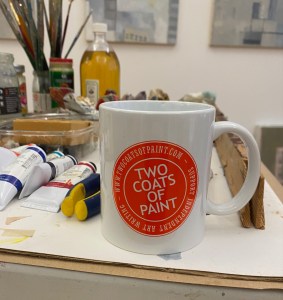

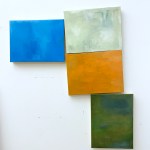
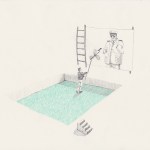
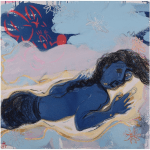

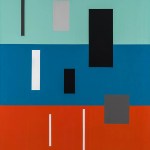


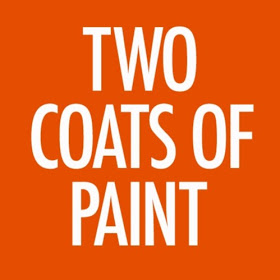

Yes, he was always a painter that I have had great admiration for; often showing videos of him talking of his process to my students as well as allowing myself to put a part of him in my practice. His willingness to let his work go where it led him was so inspirational. He is much missed.
I�m sitting in the supposed �outback� of NSW Australia about to greet a fine arts field trip class. For me Nozkowski was one of those treasured gems whose wit and influence is far reaching in a quiet way. I�ll miss him!
Peter Sharp
Art and Design, UNSW
This is so sad. His show at the Fisher Landau Center in 2008 is one of the most memorable I’ve seen, and will stay w me forever. His paintings had the surprises, rhythms, drive, and humor that make life worth living. I will miss his painterly explanations of who we are and what we do. My heart goes out to his family.
Tom Nozkowski was unto himself, really. His paintings are elegant doodles that explore adventuresome color and composition. They’re informed by is wit, intelligence and commitment to the medium of paint. Each one seems begin ex nihilo, but then, under his direction, somehow find its way to a fully formed little world that, simply put, has to be that way. He taught me that consciously painting small paintings in an age of so much preposterously enormous art is an act of rebellion and beauty.
Apologies for the typos…not enough coffee…
This is a genuine loss. Thomas Nozkowski brought such an original vision to his work. His work was both anti-genre, and anti-agenda. In the sprawling array of approaches, Paul Klee tho’ completely different comes to mind. There was an “essentialism” at the heart of so many of his pieces. I felt his pieces arrived at irreducible conclusions not only reflecting the “Road not Taken”, but often doing away with the Road altogether. He will be very much missed.